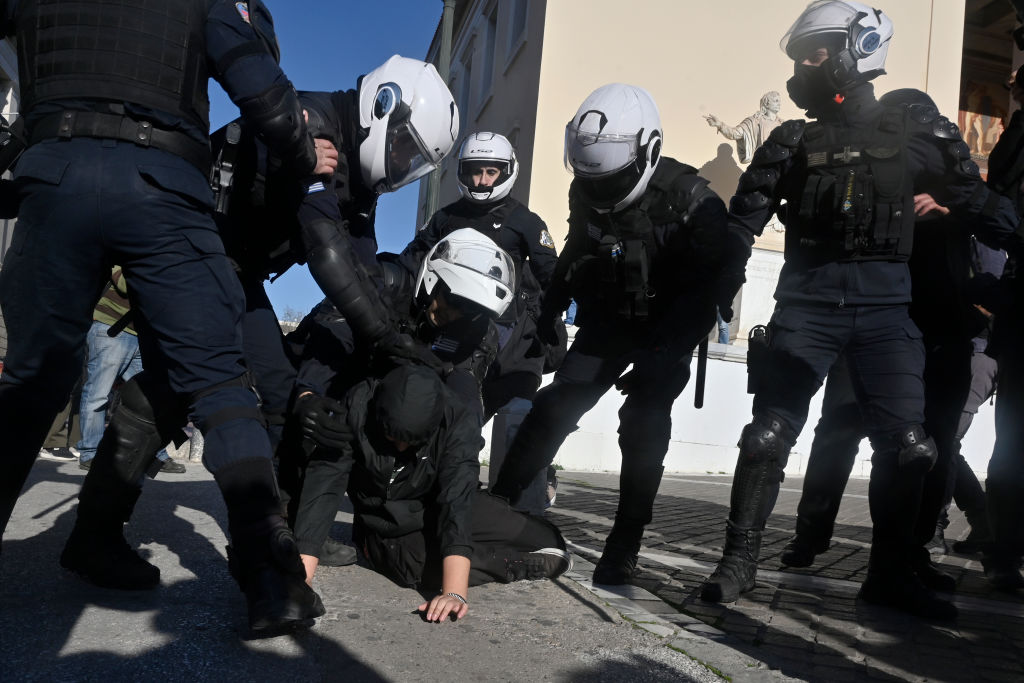Fifty years have passed since the Turkish invasion of Cyprus. With the atrocities gone unpunished and the Republic of Cyprus now an EU member, calls for reunification have lately resurfaced. But would it really be a good idea?
Of course, reunification has been on the table for the last 40 years or so. Peace plans have come and gone. In 2004 a UN brokered proposal to unite Cyprus was rejected in a referendum by the Greek Cypriot people.
However, the official government of Cyprus still aims to reach a settlement based on a bizonal, bicommunal federation for one state on Cyprus, with a single sovereignty, one single citizenship and one single international personality.
The same goes for Greece – one of the three official guarantor powers of Cyprus together with Turkey and the UK. “Greece supports the UN secretary-general’s efforts to initiate dialogue aimed at the reunification of Cyprus,” the Greek Minister of Foreign Affairs said on Saturday.
As for Turkey, while sitting at the table, it has time and again warned that it could annex the northern part of Cyprus, self-proclaimed as the Turkish Republic of Northern Cyprus (TRNC) in 1983. And in a way, this may be a solution in itself.
Let us be honest. The two states status quo in Cyprus is more or less a fait accompli. The ethnic cleansing and cultural uprooting of the Greeks of the north is complete and irreversible. No solution will allow the displaced back to their homes. No churches will be rebuilt. No properties returned.
Cypriot demographics have also dramatically changed since 1974. Back then the Turkish Cypriots made less than 20 per cent of the population. Hundreds of thousands of settlers have since poured in from Anatolia. Greeks nowadays comprise a rough 60 per cent of the island’s inhabitants.
So why would Greek Cypriots be interested in losing even more by getting into a power sharing agreement with the aggressor? And why should they risk disrupting their economic development and stability in favour of Anatolian Turks?
Greek Cypriots did not fight the British colonialists in the 50s and 60s in order to become an independent state. What they wanted was to unite with “mother Greece.” This is what the Athens-led 1974 coup — which offered Turkey the excuse to invade — was also all about.
Could Greek Cypriots still be interested in becoming a part of Greece? The answer is no. And neither would the world’s great powers wish for something like this to happen.
If Greece and the free part of Cyprus united, the Greeks would rule the waves from Italy all the way to the Middle East. Most of the oil and natural gas of the Eastern Mediterranean would be lawfully theirs. They would also become overnight the world’s first commercial maritime power, as both countries are among the world’s top shipping powers.
All this is too out of the box thinking for Athens and Nicosia. And then we live in a world where Leftists and progressives prevail and rule. Many in Greece and Cyprus overlook their own nation’s interests in the name of internationalist liberalism. The idea of a “Hellenic union” would be treated as folly.
Not to mention how baffling such a notion would be on a Brussels level. Could the EU even conceive of two of its member states merging? Would the EU agree to the official exclusion of the Turkish Cypriot side from the acquis communautaire?
This last question is one that the EU may have to face. As efforts for a new round of talks on a reunification agreement are being rekindled, all sides weigh their options. The governments of Cyprus, Turkey and Greece may go for it, but this does not necessarily apply to the people.
If people have a say the Cyprus problem may finally be resolved through an official divorce. In such a case, if another peace plan goes flop, Brussels should be ready to manage two states on Cyprus, or even an annexation of the north by Turkey.
Half a century of injustice and neglect is not an easy thing to fix. Cyprus may be permanently broken.





The changing face of Cyprus: Will the island state soon be the first European country with a non-European majority?